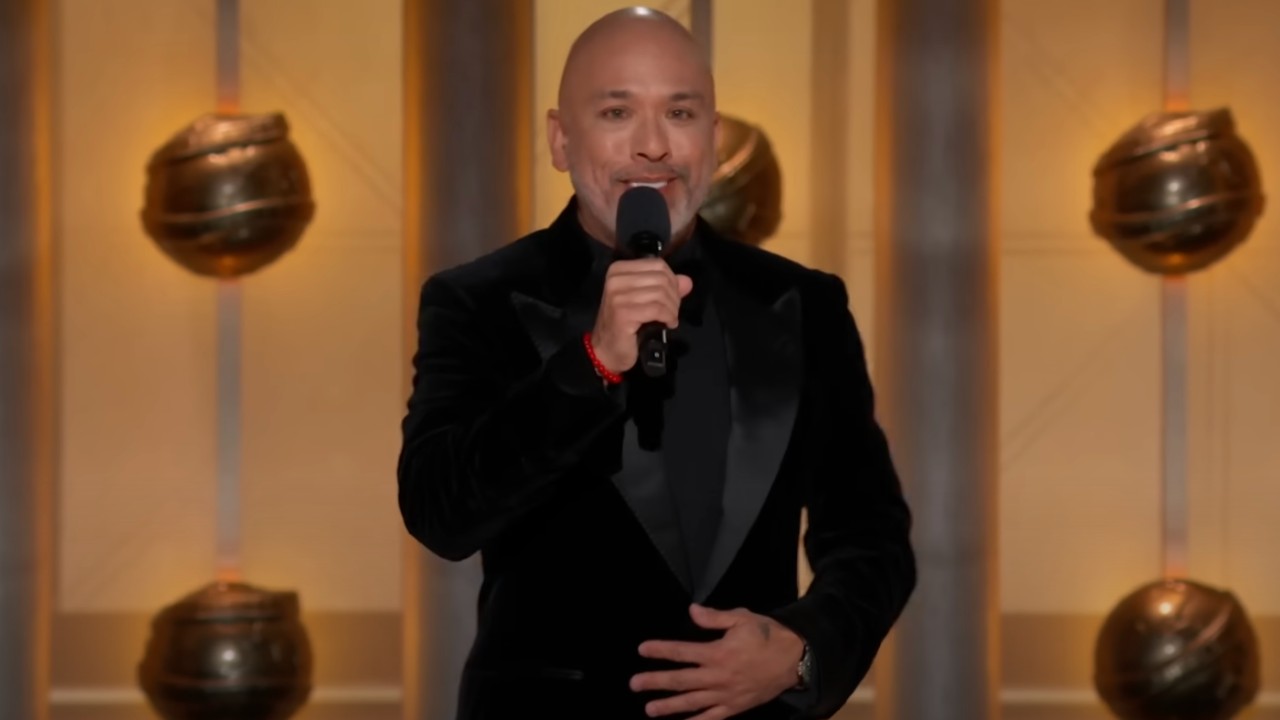
In the week following the announcement of 2024's Golden Globe winners, there has been a sustained focus on Jo Koy, his monologue and the scrutiny he got for it. Koy was roasted for his opening set, and criticized for jokes he made about Barbie, Taylor Swift and more. Now, the stand-up comedian is reflecting on what happened, and explaining why he thinks what he did was important.
Almost a week after his hosting gig, Jo Koy spoke with the LA Times about what happened, and the aftermath of it. He was asked to “grade” his performance, and in response, he said:
I think I did well given the circumstances. I don’t want to give myself a rating because that’s subjective, you can give me whatever rating you want. I’m gonna give myself an A-plus just based on the courage [to do it]. I’m going to hit it over the head a million times, whoever you can think of in your head that could have done it, I’m telling you right now they said no and I didn’t. I looked at it in a different light.
Earlier in the interview he explained those circumstances he was under. The comedian said they were “writing up until they said we’re live,” and he was reading jokes “cold,” noting he never got a chance to work them out. He had ten days to prepare, writers were hired eight days before the show, and the writers’ room was formed two days ahead of the ceremony. The monologue was finished the day before they went live.

Greta Gerwig Responds to Jo Koy’s Bad Barbie Jokes And Proves She’s A Better Sport Than I Am
Then, when they went live, the jokes Jo Koy told did not land, and they were met with a lot of criticism. Right after the ceremony, the comedian responded to the backlash, saying he “had fun,” and that “hosting is a tough gig.” He explained that what happened did “hurt,” and he knew some of the jokes he told, like the one about Swift, didn’t land.
While many were mad about Koy’s performance, some comedians shared their takes on just how hard his job was. Steve Martin offered a great perspective on the monologue, saying that hosting is “not for the squeamish,” and that while the host “missed,” he was “light on his feet.” Meanwhile, Michael Che said comedians should “boycott” hosting award shows, specifically noting how tough it is to play those kinds of rooms.
On top of reflecting on his literal performance, Koy also spoke about the greater meaning behind him taking the job, which is why he thinks what he did is still important. Before the Golden Globes aired on the 2024 TV schedule, he explained what hosting meant for Asian representation in this industry. He reiterated that idea in this interview, saying:
The history of the show is 81 years. That’s 81 hosts and some repeated. I’m the first Asian to ever solo host. It’s 2024, I’m the first out of 81 years. Sandra Oh was the first co-host, but I was the first solo host. Imagine if someone said yes before me, we’d still be at the 82nd Golden Globes and still no Asian as a solo host, so if I didn’t say yes, there still would never have been.
Clearly, it meant a lot to him to take on the gig, especially when it came to representing Asian artists. As he said, if he hadn’t said yes, there would have been an even longer wait to see this kind of representation on such a massive stage.
Overall, it seems like Jo Koy is holding his head high, and while he knows the monologue didn’t go well, he’s proud that he was courageous enough to take the job. As his comments illustrate, he’s remaining optimistic about the situation, and now he’s moving forward and onto his next gig, his stand-up world tour.







